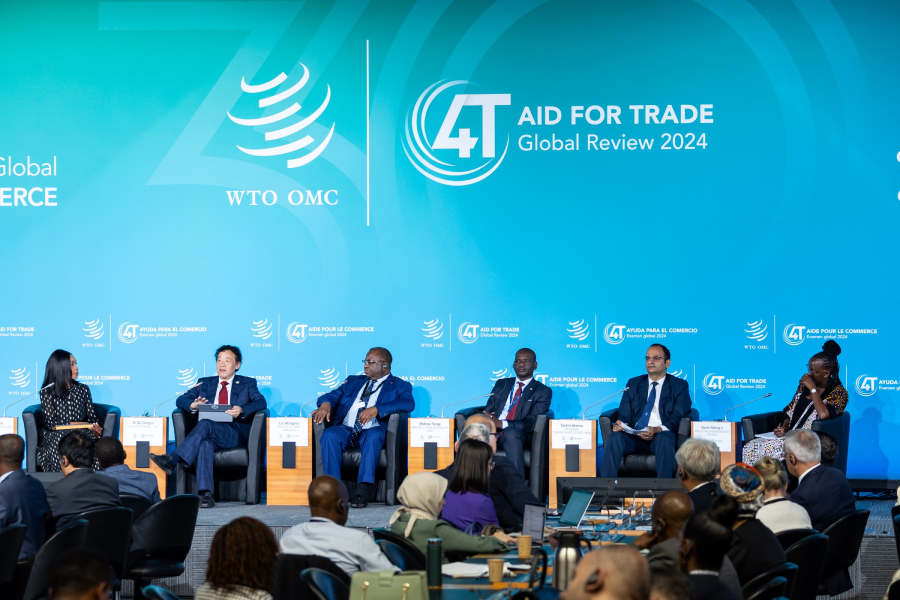Global Hunger on the Rise: FAO Director-General Stresses Political and Social Commitments for Food Security

Global hunger is on an alarming upward trend, necessitating robust political and social commitments in addition to economic policy measures, according to QU Dongyu, Director-General of the Food and Agriculture Organization of the United Nations (FAO). Speaking at the Global Review of Aid for Trade hosted by the World Trade Organization in Geneva, Qu emphasized the importance of fair trade practices in promoting inclusive and equitable growth.
During a high-level panel discussion with Luc Magloire Mbarga Atangana, Cameroon’s Minister of Trade, Mathieu Guibolo Fanaa, Chad’s Minister of Trade and Industry, and other experts, Qu highlighted the necessity of complementary trade policies to enhance global food security goals. Atangana underscored that feeding the world is a security challenge, advocating for clear and binding rules to support developing nations. He emphasized that Aid for Trade initiatives should focus on enhancing supply capabilities and production development.
Don’t miss out! Subscribe to our newsletter for the latest content straight to your inbox, or register for FREE to gain full access.
Fanaa called for prioritizing food security within the WTO framework, stressing the need for increased agricultural production in Africa and equitable conditions in international markets. Food security and agricultural trade were key topics in the breakout sessions of the three-day conference, with active participation from FAO officers.
Qu presented five suggestions to address global food insecurity, noting that FAO’s forecasts predict nearly 600 million chronically undernourished people by 2030. His recommendations included:
- Investing in Rural Infrastructure: Enhancing access to markets for smallholders through investments in broadband, financial services, roads, and storage facilities.
- Research, Development, and Innovation: Strengthening the resilience and sustainability of agrifood systems while reducing greenhouse gas emissions and fostering sustainable water management.
- Reducing Food Loss and Waste: Implementing measures to minimize food wastage.
- Focusing on Smallholders and Vulnerable Populations: Prioritizing support for these groups to achieve the previous goals.
- Global Collaboration and Governance: Enhancing cooperation and governance to achieve a sustainable and food-secure world.
“We have to look after our own planet before it’s too late,” Qu concluded, highlighting the urgency of these measures to address the growing global hunger crisis.


Responses